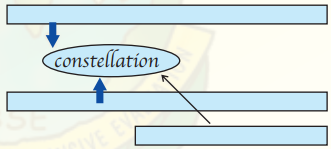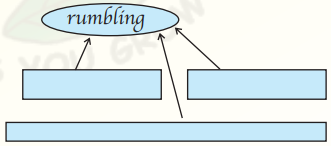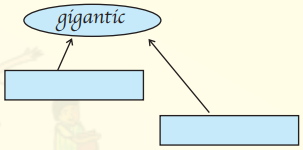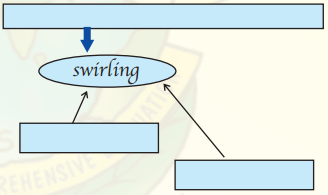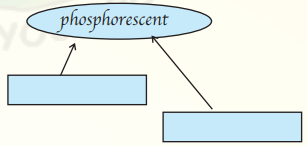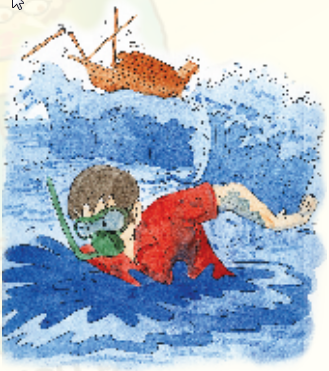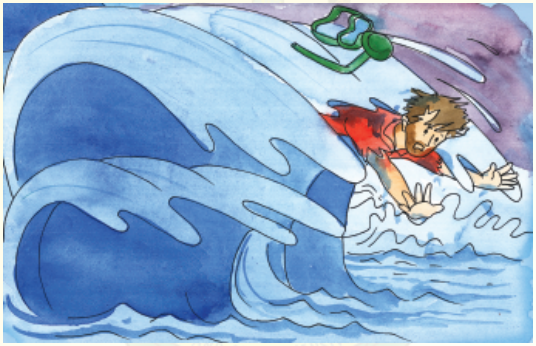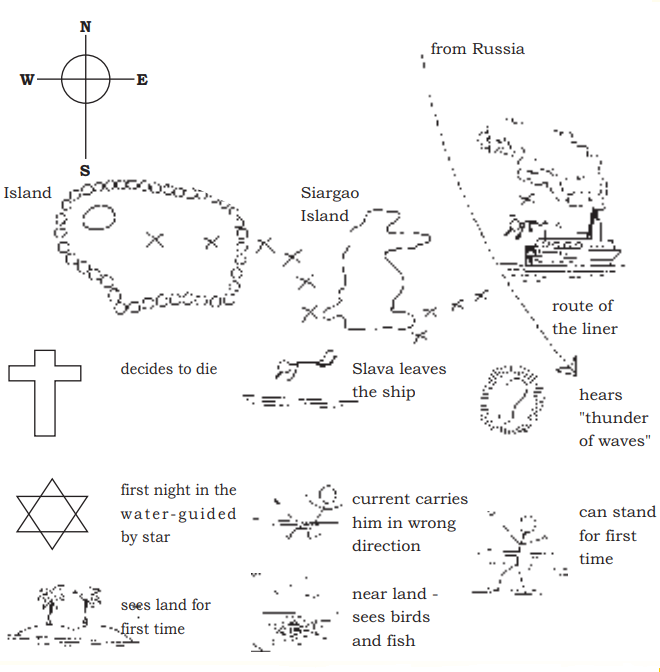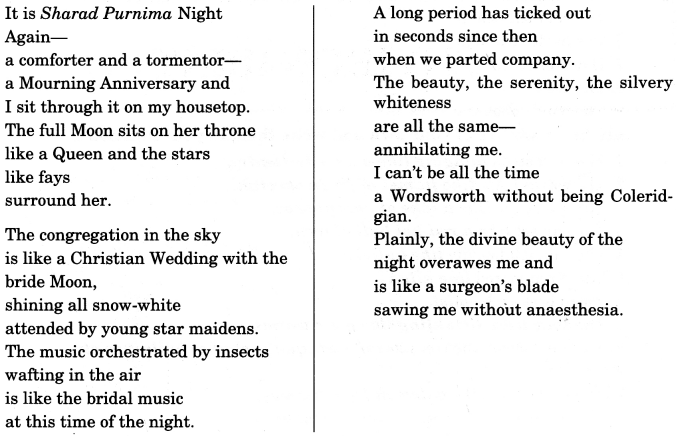NCERT Solutions for Class 9 English Beehive Chapter 10 Kathmandu are part of NCERT Solutions for Class 9 English. Here we have given NCERT Solutions for Class 9 English Beehive Chapter 10 Kathmandu.
| Board | CBSE |
| Textbook | NCERT |
| Class | Class 9 |
| Subject | English Beehive |
| Chapter | Chapter 10 |
| Chapter Name | Kathmandu |
| Category | NCERT Solutions |
NCERT Solutions for Class 9 English Beehive Chapter 10 Kathmandu
TEXTBOOK EXERCISES
(Page 131)
THINKING ABOUT THE TEXT
Activity
1. On the following map mark out the route, which the author thought of but did not take, to Delhi.
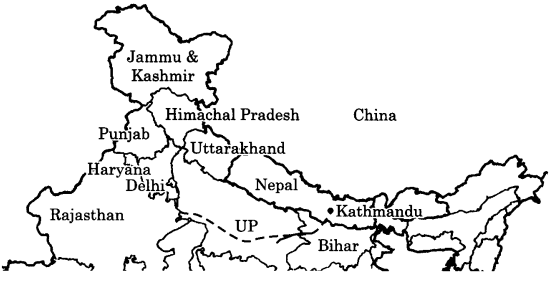
Answer
Route is shown by dotted line
- Kathmandu to Patna by bus & train
- Patna to Allahabad by boat/Ganges
- Allahabad to Delhi by boat/Yamuna
2. Find out the possible routes (by rail, road or air) from Kathmandu to New Delhi! Mumbai / Kolkata / Chennai.
Answer
For self-attempt. Students may take the Atlas of the country and see or find themselves the air, road routes from Kathmandu to New Delhi/Mumbai/Kolkata/Chennai.
Some possible routes are :
By Road
- Kathmandu – Viratnagar – Patna
- Kathmandu – Nepalganj – Gorakhpur
By Rail
- Patna – Delhi
- Gorakhpur – Delhi
- Patna – Kolkata
- Gorakhpur – Varanasi – Kolkata
- Patna – Allahabad – Mumbai
- Gorakhpur – Allahabad – Mumbai
- Patna – Khadagpur – Chennai
- Gorakhpur – Allahabad – Nagpur – Chennai
I. Answer these questions in one or two words or in short phrases.
- Name the two temples the author visited in Kathmandu.
- The writer says, “All this I wash down with Coca Cola.” What does ‘all this’ refer to ?
- What does Vikram Seth compare to the quills of a porcupine ?
- Name five kinds of flutes.
Answers
- These two temples are : Pashupatinath and Baudhnath stupa.
- It is : com-on-the-cob and marzipan.
- He compares flutes tied on the top of the flute seller’s pole to the quills of a porcupine.
- These are : the reed neh, the recorder, the Japanese shakuhachi, the deep bansuri, the breathy flutes of South America, the high-pitched Chinese flutes.
II. Answer each question in a short paragraph.
1. What difference does the author note between the flute seller and the other hawkers ?
Or
What is the difference between the behaviour of the flute seller and that of the other hawkers ? (CBSE)
2. What is the belief at Pashupatinath about the end ofKaliyug ?
3. The author has drawn powerful images and pictures. Pick out three examples each of
(i) the atmosphere of‘febrile confusion’ outside the temple of Pashupatinath (for example: some people trying to get the priest’s attention are elbowed aside…)
(ii) the things he sees
(iii) the sounds he hears.
Answers
1. The author sees the difference in how they are sold. Other sellers cry out their wares to sell. But the flute seller sells his wares in an off – handed way.
2. It is that when the small shrine on Bagmati river comes out fully, the goddess inside will escape. Then the Kaliyug will end on the earth.
3. (i) Monkeys fight among themselves. They jump on to a shivalinga. They run round the temples. They make a noise and show their teeth. Priests, hawkers, devotees, cows, pigeons, dogs roam here and there.
(ii) The author sees people, animals and birds roaming here and there. A princess of the Nepalese royal house appears. All bow and make way. He also sees a party of saffron-clad Westerners. They struggle to enter the temple.
(iii) He hears the sounds of songs. Cows low and vendors shout out their wares. He hears these sounds. He finds the flute sound of the flute seller sweet and melodious.
III. Answer the following questions in not more than 100-150 words each.
1. Compare and contrast the atmosphere in and around the Baudhnath shrine with the Pashupatinath temple. (CBSE) (Imp.)
Or
How does Vikram Seth find the atmosphere in and around the Baudhnath stupa quite in contrast to that of the Pashupatinath shrine ? (CBSE)
2. How does the author describe Kathmandu’s busiest streets ?
Or
What observations does the author make about the Kathmandu bazaar ? (CBSE)
3. “To hear any flute is to be drawn into the commonality of all mankind.” Why does the author say this ?
(V. Imp.)
Answers
1. The atmosphere in and around Baudhnath shrine offers a contrast’to that of the Pashupatinath temple. At Pashupatinath, the atmosphere is of febrile confusion. But at Baudhnath stupa there is stillness. At the road outside the Pashupatinath temple, it is all disorder and disquiet. Some people try to enter the temple. A policeman stops them.
He sees that they are not Hindus. Monkeys fight and chase each other. One monkey jumps on to a shivalinga. Then he runs screaming around the temples. The river Bagmati flows below the temple. The old offerings of flowers and leaves are dropped into it. On the other hand, the big dome of Baudhnath stupa is ringed by a road. But there are no crowds there.
बौद्धनाथ मंदिर के अंदर और आस-पास का वातावरण पशुपतिनाथ मंदिर के वातावरण के बिल्कुल विपरीत है। पशुपतिनाथ के आस-पास उत्तेजनापूर्ण अस्तव्यस्तता का वातावरण है। परन्तु बौद्धनाथ स्तूप के पास शांति छायी हुई है। पशुपति नाथ मंदिर के बाहर सड़क पर सर्वत्र अव्यवस्था और अशांति है। कुछ लोग अंदर प्रवेश पाने के इच्छुक हैं। एक पुलिस का सिपाही उन्हें रोकता है। वह देखता है कि वे हिन्दू नहीं हैं। बंदर लड़ते और एक-दूसरे का पीछा करते हैं। एक बंदर एक शिवलिंग पर चढ़ जाता है। वह फिर चीखता हुआ मंदिरों के आस-पास भागता रहता है। मंदिर के नीचे बागमती नदी बहती है। इसमें पहले चढाये गये फूल और पत्ते बहा दिये जाते हैं। दूसरी ओर बौद्धनाथ स्तूप के चारों तरफ एक गोल सड़क है। परंतु वहाँ पर भीड़ नहीं है।
2. The streets of Kathmandu are full of life. These are full of small shops and vendors. They sell things of tourists’ interest. There are fruit sellers, flute sellers, hawkers of picture postcards and shops. These shops sell Western cosmetics. There are other shops also there. From them you can get film rolls and chocolates, or copper utensils and Nepalese antiques.
There is much noise. Radios blare out film music, car horns sound and bicycle bells ring. Stray cows low. Vendors shout out their wares. The author bought a roasted corn-cob from the pavement. He also bought a sweet dish, an orange drink and coca- cola. In fact, the bazaar is like a fair.
काठमांडू की गलियाँ जीवन से भरी हैं। ये छोटी-छोटी दुकानों और फेरी वालों से भरी हैं। वे यात्रियों की रुचि का सामान बेचते हैं। फल बेचने वाले, बाँसुरी वाले, तस्वीरों वाले पोस्टकार्ड के विक्रेता और दुकानें हैं। ये दुकानें पश्चिमी सौंदर्य प्रसाधन बेचती हैं। वहाँ पर कुछ अन्य दुकानें भी हैं। वहाँ से आप फिल्मों की रीलें और चाकलेट या फिर ताँबे के बर्तन और नेपाली पुरावस्तुएँ प्राप्त कर सकते हैं।
चारों तरफ शोर ही शोर है। रेडियो से ऊँची आवाज में फिल्म-संगीत बजता है ; कारों के हार्न और साइकिल की घंटियाँ बजती हैं। आवारा गायें रँभाती हैं। फेरी वाले ऊँची आवाज में अपना माल बेचते हैं। लेखक ने पगडण्डी से एक भुट्टा खरीदा। उसने एक मिठाई, एक संतरी पेय पदार्थ और कोका कोला भी लिया। वास्तव में यह बाजार एक मेले जैसा है।
3. The author says so due to various reasons. For him or for anybody flute music is the most universal. It is also the most particular of sounds. The flute seller doesn’t sell one type of flutes only. Every culture has its own flute. They are different from each other. The flute seller does not shout out his wares. He simply plays different tunes on his flute. When he plays, the sound affects each and everyone. It touches everyone’s heart. So that way the author is drawn into the commonality of all mankind.
लेखक कई कारणों से ऐसा कहता है। उसके लिए या किसी के लिए बाँसुरी का संगीत अत्यधिक सार्वभौमिक है। आवाजों में यह अत्यधिक खास भी है। बाँसुरी विक्रेता एक ही प्रकार की बाँसुरी नहीं बेचता। हरेक संस्कृति की अपनी ही एक बाँसुरी है। वे एक दूसरी से भिन्न हैं। बाँसुरी विक्रेता चिल्ला कर अपना माल नहीं बेचता। वह सिर्फ अपनी बाँसुरी पर तरह-तरह की धुनें निकालता है। जब वह बजाता है तो आवाज हरेक व्यक्ति को प्रभावित करती है। यह सभी का दिल छू लेती है। इस प्रकार इस तरीके से लेखक मानवता के समाज में खिंचा चला आता है।
THINKING ABOUT LANGUAGE
I. Read the following sentences carefully to understand the meaning of the italicised phrases. Then match the phrasal verbs in Column A with their meanings in Column B.
- A communal war broke out when the princess was abducted by the neighbouring prince.
- The cockpit broke o/f from the plane during the plane crash.
- The car broke down on the way and we were left stranded in the jungle.
- The dacoit broke away from the police as they took him to court.
- The brothers broke up after the death of the father.
- The thief broke into our house when we were away.
| A | B |
| (i) break out | (a) to come apart due to force |
| (ii) break off | (b) end a relationship |
| (iii) break down | (c) break and enter illegally; unlawful trespassing |
| (iv) break away (from someone) | (d) to start suddenly, (usually a fight, a war or a disease) |
| (v) break up | (e) to escape from someone’s grip |
| (vi) break into | (f) stop working |
Answer
| A | B |
| (i) break out | (d) to start suddenly, (usually a fight, a war or a disease) |
| (ii) break off | (a) to come apart due to force |
| (iii) break down | (f) stop working |
| (iv) break away (from someone) | (b) end a relationship |
| (v) break up | (e) to escape from someone’s grip |
| (vi) break into | (c) break and enter illegally; unlawful trespassing |
II. 1. Use the suffixes -ion or -tion to form nouns from the following verbs. Make the necessary changes in the spellings of the words.
Example : proclaim – proclamation
- cremate ……
- act ……..
- exhaust …….
- invent …….
- tempt …….
- immigrate …….
- direct …….
- meditate ……..
- imagine ……..
- dislocate …….
- associate ……..
- dedicate ……..
Answer
- cremation
- action
- exhaustion
- invention
- temptation
- immigration
- direction
- meditation
- imagination
- dislocation
- association
- dedication
2. Now fill in the blanks with suitable words from the ones that you have formed.
- Mass literacy was possible only after the …….. of the printing machine.
- Ramesh is unable to tackle the situation as he lacks …….. .
- I could not resist the …….. to open the letter.
- Hardwork and ………. are the main keys to success.
- The children were almost fainting with ………. after being made to stand in the sun.
Answer
- invention
- imagination
- temptation
- dedication
- exhaustion.
III. Punctuation
Use capital letters, full stops, question marks, commas and inverted commas wherever necessary in the following paragraph.
an arrogant lion was wandering through the jungle one day he asked the tiger who is stronger than you you O lion replied the tiger who is more fierce than a leopard asked the lion you sir replied the leopard he marched upto an elephant and asked the same question the elephant picked him up in his trunk swung him in the air and threw him down look said the lion there is no need to get mad just because you don’t know the answer
Answer
An arrogant lion was wandering through the jungle one day. He asked the tiger, “Who ‘ is stronger than you ?” “You, O ! lion,” replied the tiger. ‘Who is more fierce than a leopard ?” asked the lion. “You, sir,” replied the leopard. He marched up to an elephant and asked the same question. The elephant picked him up in his trunk, swung him in the air and threw him down. “Look”, said the lion, “there is no need to get mad just because you don’t know the answer.”
1. Fill in the blanks with the correct form of the verb in brackets.
(i) The heart is a pump that …… (send) the blood circulating through our body. The pumping action ……. (take place) when the left ventricle of the heart ……. (contract). This …… (force) the blood out into the arteries, which ……. (expand) to receive the oncoming blood.
(ii) The African lungfish can live without water for up to four years. During a drought it …….. (dig) a pit and ……. (enclose) itself in a capsule of slime and earth, leaving a tiny opening for air. The capsule …….. (dry) and …….. (harden), but when rain ……… (come), the mud …….. (dissolve) and the lungfish …… (swim) away.
(iii) Mahesh : We have to organise a class party for our teacher. …… (Do) anyone play an instrument ?
Vipul : Rohit …… (play) the flute.
Mahesh : ……. (Do) he also act ?
Vipul : No, he ……. (compose) music.
Mahesh : That’s wonderful!
Answers
(i) sends, takes place, contracts, forces, expands
(ii) digs, encloses, dries, hardens, comes, dissolves, swims
(iii) Does, plays, Does, doesn’t compose.
WRITING
Diary entry for a travelogue
I. The text you read is a travelogue where the author, Vikram Seth, talks about his visit to two sacred places in Kathmandu.
Imagine that you were with Vikram Seth on his visit to Pashupatinath temple, and you were noting down all that you saw and did there, so that you could write a travelogue later.
Record in point form
- what you see when you reach the Pashupatinath temple
- what you see happening inside the temple
- what you do when inside the temple
- what you see outside the temple
- what your impressions are about the place.
Answers
1. Things seen at the Pashupatinath temple
A sign proclaiming: ‘Entrance for the Hindus only’. Priests, hawkers, devotees, tourists, cows, monkeys, pigeons, dogs roam about. A crowd of worshippers.
2. What is happening inside the temple
Many worshippers. People getting priest’s attention elbowed out. A princess of Nepalese royal house appears. Saffron-clad Westerners try to enter. Policeman. Monkeys fight. Jump onto a shivalinga.
3. What you do when inside the temple
No such description or reference.
4. What you do outside the temple
Bagmati seen flowing. A corpse is being cremated. Washerwomen work and children bathe. A basket of flowers and leaves dropped into the river.
5. What your impressions are about the place
Place most sacred for the Hindus. Worshippers don’t mind the crowd. They jostle their way inside. They don’t mind even when jostled. Place presents a scene of a big market where everything sells.
II. Here is your diary entry when you visited Agra. Read the points and try to write a travelogue describing your visit to Agra and the Taj Mahal. You may add more details.
January 2003 ……. rise before dawn ……. take the Shatabdi Express at 6.15 a.m. from Delhi …… meet a newly-married couple on train ….. talk about Himachal Pradesh …… get off the train …… enter the once-grand city, Agra …… twisted alleys ……. traffic dense …….. rickshaws, cars, people ……. vendors selling religious artifacts, plastic toys, spices and sweets …… go to the Taj Mahal …….. constructed entirely of white marble …… magical quality …….. colour changes with varying of light and shadow ……… marble with gemstones inside …….. reflection of the Taj Mahal in the pond ……. school-children, tourists ……. tourist guides following people.
Answer
It was January 2003. I rose before dawn and got ready to catch the Shatabdi Express at 6.15 am from Delhi. I met a newly-married couple on the train. They talked about Himachal Pradesh. I got off the train at Agra. It was a strange experience to move in the twisted alleys of Agra, once-grand city. The traffic was dense with rickshaws, cars, pedestrians, vendors selling religious artifacts, plastic toys, spices and sweets.
At last I reached the Taj Mahal. It is really a dream made physical. It has its own magical quality. It has been constructed entirely of white marble. It has got a strange effect on the onlooker. The marble changes colours with varying of light and shadow. The marble inside is inlaid with gemstones. The pond has the reflection of the Taj Mahal. There was a big crowd of school children, tourists etc., followed by the tourist guides to make quite bucks.
We hope the NCERT Solutions for Class 9 English Beehive Chapter 10 Kathmandu help you. If you have any query regarding NCERT Solutions for Class 9 English Beehive Chapter 10 Kathmandu, drop a comment below and we will get back to you at the earliest.

